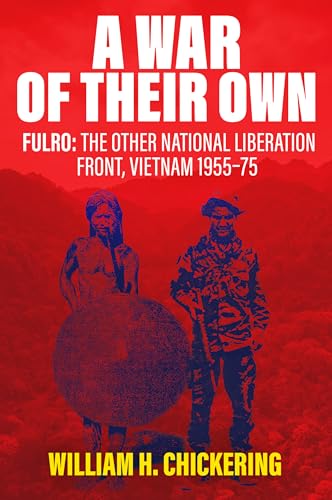
The Vietnamese War
by David W. P. Elliott
"Revolution and Social Change in the Mekong Delta, 1930-1975"
Popularity
1.01 / 5
* A book's popularity is determined by how it compares to all other books on this website.
Where to buy?
Buy from Amazon* If you buy this book through the link above, we may receive a small commission at no extra cost to you.
The Vietnamese War by David W. P. Elliott
Details
War:
Vietnam War
Perspective:
Guerrilla Fighters
True Story:
Yes
Biography:
No
Region:
Asia
Page Count:
862
Published Date:
2003
ISBN13:
9780765606020
Description
Main Themes and Topics
"The Vietnamese War" by David W. P. Elliott provides an in-depth exploration of the Vietnamese revolutionary movement with a specific focus on My Tho, a province in the Mekong Delta. One of the central themes of the book is the role of land reform in mobilizing the peasantry to join the revolutionary cause. Elliott argues that while the reforms significantly contributed to peasant support for the revolution, they also led to a series of unintended consequences. These consequences included the emergence of a large middle class that resisted the revolution's goal of agricultural collectivization, thereby posing challenges to its success. The book offers a comprehensive analysis of the complex socio-political dynamics during this tumultuous period in Vietnam's history.
Writing Style and Tone
David W. P. Elliott employs a meticulous and scholarly writing style, presenting a well-researched narrative that draws extensively from interviews and historical records. The tone is academic yet accessible, making the book suitable for both scholars and readers with a keen interest in understanding the intricacies of the Vietnamese revolutionary movement. Elliott's use of firsthand accounts from prisoners and defectors provides a human element to the narrative, offering insights into the personal experiences and motivations of those involved in the conflict.
Brief Summary (no spoilers)
"The Vietnamese War" is an extensive analysis of the revolutionary movement in Vietnam, with a particular focus on My Tho province during the period from 1965 to 1974. The book examines how land reform efforts were pivotal in enlisting the support of the peasantry while simultaneously introducing challenges that complicated the revolution's goals. Elliott relies heavily on interviews conducted by the Rand Corporation and the U.S. Department of Defense, offering a detailed examination of the socio-political changes occurring in Vietnamese society during the war. Through this exploration, the book provides a nuanced understanding of the revolutionary efforts and the socio-economic transformations that followed.









